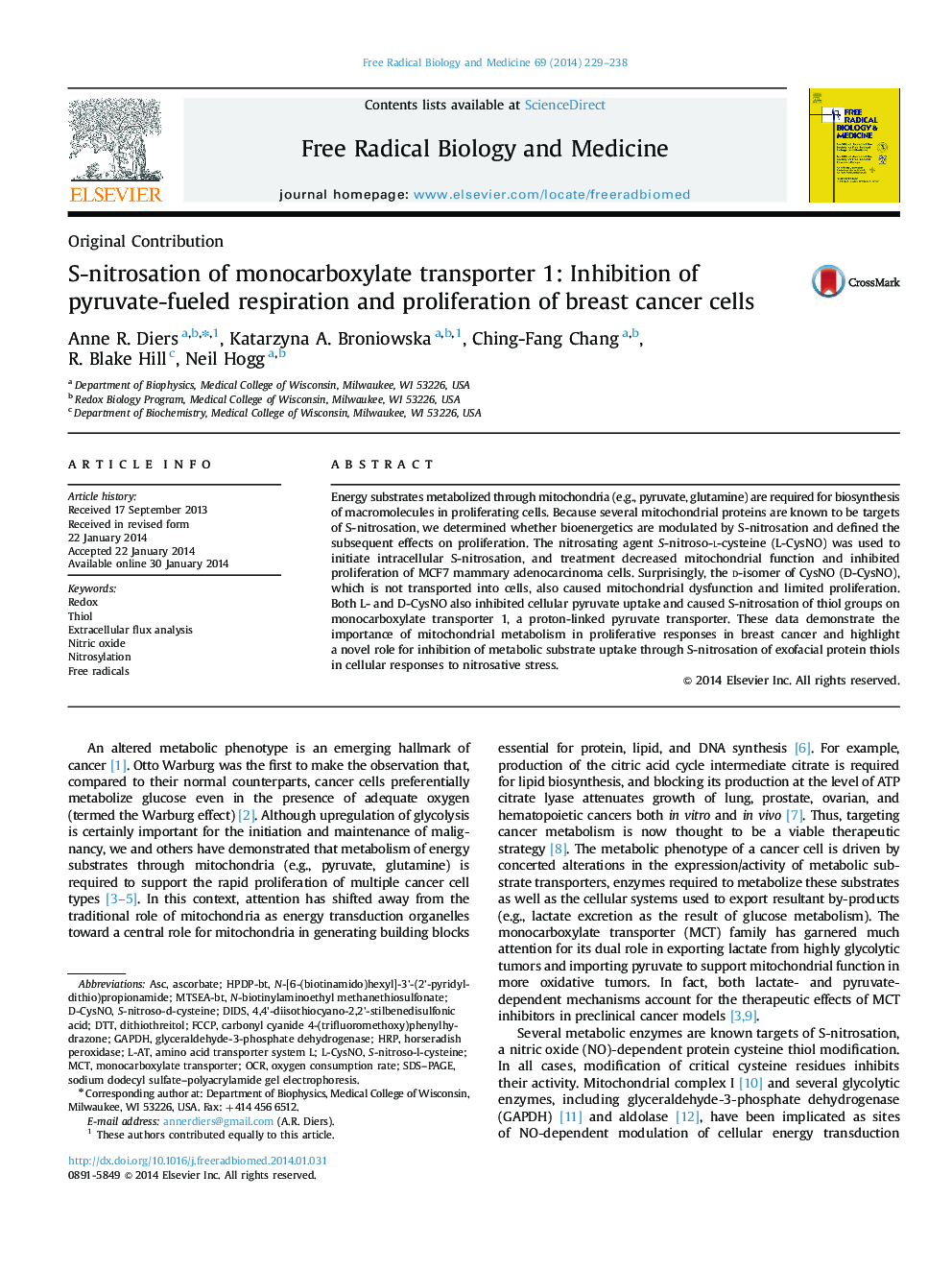| Article ID | Journal | Published Year | Pages | File Type |
|---|---|---|---|---|
| 8270660 | Free Radical Biology and Medicine | 2014 | 10 Pages |
Abstract
Energy substrates metabolized through mitochondria (e.g., pyruvate, glutamine) are required for biosynthesis of macromolecules in proliferating cells. Because several mitochondrial proteins are known to be targets of S-nitrosation, we determined whether bioenergetics are modulated by S-nitrosation and defined the subsequent effects on proliferation. The nitrosating agent S-nitroso-l-cysteine (L-CysNO) was used to initiate intracellular S-nitrosation, and treatment decreased mitochondrial function and inhibited proliferation of MCF7 mammary adenocarcinoma cells. Surprisingly, the d-isomer of CysNO (D-CysNO), which is not transported into cells, also caused mitochondrial dysfunction and limited proliferation. Both L- and D-CysNO also inhibited cellular pyruvate uptake and caused S-nitrosation of thiol groups on monocarboxylate transporter 1, a proton-linked pyruvate transporter. These data demonstrate the importance of mitochondrial metabolism in proliferative responses in breast cancer and highlight a novel role for inhibition of metabolic substrate uptake through S-nitrosation of exofacial protein thiols in cellular responses to nitrosative stress.
Keywords
Extracellular flux analysisOCRS-nitroso-l-cysteineASCDTTGAPDHHRPDIDSMCTFCCPSDS–PAGEAscorbateThioldithiothreitolFree radicalsRedoxmonocarboxylate transporterOxygen consumption rateNitrosylationNitric oxideHorseradish peroxidasecarbonyl cyanide 4-(trifluoromethoxy)phenylhydrazoneglyceraldehyde-3-phosphate dehydrogenase
Related Topics
Life Sciences
Biochemistry, Genetics and Molecular Biology
Ageing
Authors
Anne R. Diers, Katarzyna A. Broniowska, Ching-Fang Chang, R. Blake Hill, Neil Hogg,
